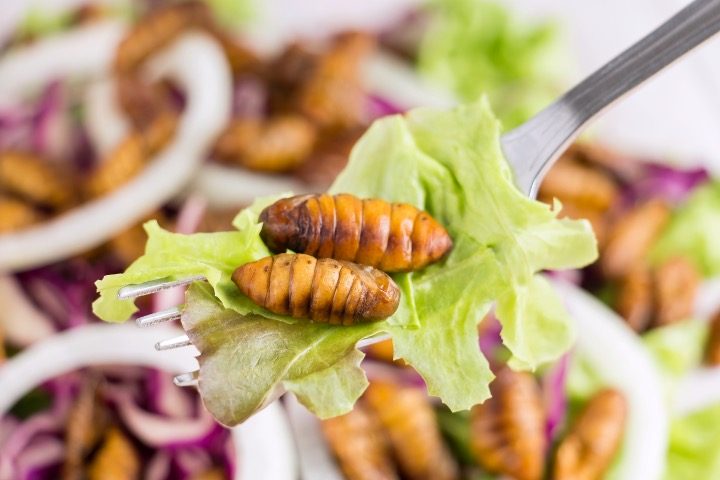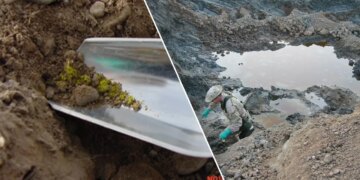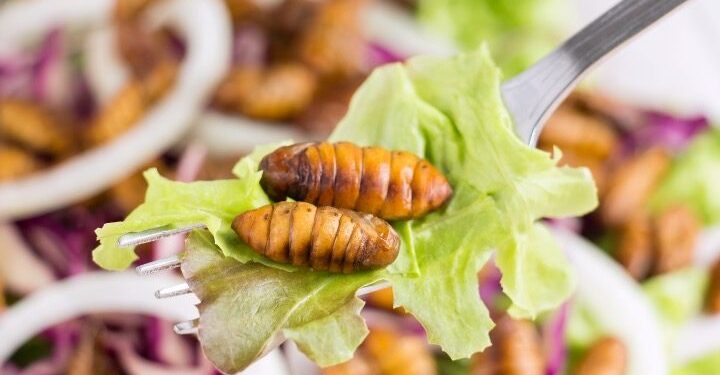
For a while now, climate crusaders have been pushing the idea of eating insects as one of the ways humans can contribute to solving the allegedly man-made problem of climate change. Agriculture, specifically ranching and the entire process of getting meat to plate, is supposedly an enormous contributing factor in global warming due to carbon-intensive methods of farming.
So, bugs have been floated as an alternative protein for the masses. Proponents of the Great Reset like the World Economic Forum have stated that humanity can be “conditioned” to consume insects such as beetles, caterpillars, bees, wasps, and ants as a means of saving the planet.
All Things Bugs
All Things Bugs LLC was started in 2011 by Dr. Aaron Dossey as a Facebook page dedicated to insect photography. Dossey began attending conferences that heralded insects as a sustainable food source and the idea intrigued him. He applied to the Bill & Melinda Gates Foundation, which awarded him funding for his attempt to make grubs as palatable as hamburgers.
The company refers to itself as “the world’s leading innovator in the insect industry,” and their website touts the idea of insects as food:
They [insects] are the most sustainable protein source on the planet, beating out other animal and even plant protein sources! They require far fewer resources such as land, water, and feed to produce than cows (beef), pigs (pork), chickens, dairy, and even most plant crops!
And with funding from the Defense Advanced Research Projects Agency (DARPA), the company has branched into genetic modification of insects. All Things Bugs is attempting to develop virus-resistant insects to prevent supply problems, and adding key nutrients such as vitamins A, C, D, and K, iron, calcium, and iodine.
“[W]e are using CRISPR/Cas 9 gene editing and other methodologies to develop base technologies for creating insects as a new bioresource,” the company’s website reports.
Are They Safe?
The bureaucracy of the U.S. Food and Drug Administration (FDA), normally so willing to ban products for perceived harm to humans, have lumped most insect foods into the “Generally Regarded as Safe” (GRAS) category. According to Dr. Meryl Nass, that categorization “means they don’t require testing” and allows the FDA to “look the other way” on bugs as food.
“How long will it take before we learn whether these foods are safe? It could take generations,” Nass speculated.
Food-safety watchers are also concerned that insufficient testing is being done prior to foisting bugs into the public’s diet.
Claire Robinson is managing editor of GM Watch, which keeps track of and reports on genetically modified foods and crops. Said Robinson:
With all GMOs [genetically modified organisms], including insects, it’s vital that they are subjected to a pre-marketing risk assessment for health and the environment. This includes testing them for the presence of pathogens, possible allergens and substances that may be toxic to humans. Then they must be clearly labeled for the consumer.
But Great Reset proponents would prefer a more secretive rollout of insect protein into the food supply. They wish to slowly indoctrinate us with the idea of eating bugs, and slowly reduce our meat consumption through onerous taxation and viciously shaming anyone who deigns to eat a hamburger.
When we’re impoverished by taxation and properly shamed for eating meat, we’ll eat the bugs and be grateful for them.

































